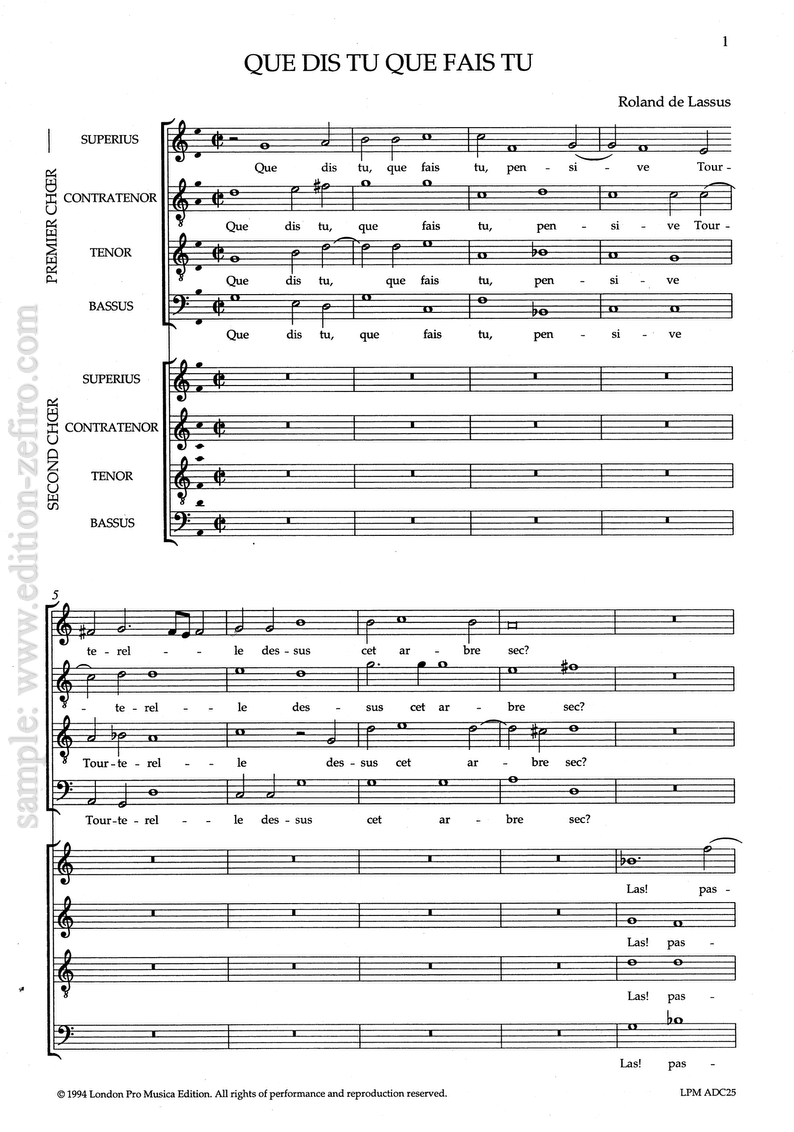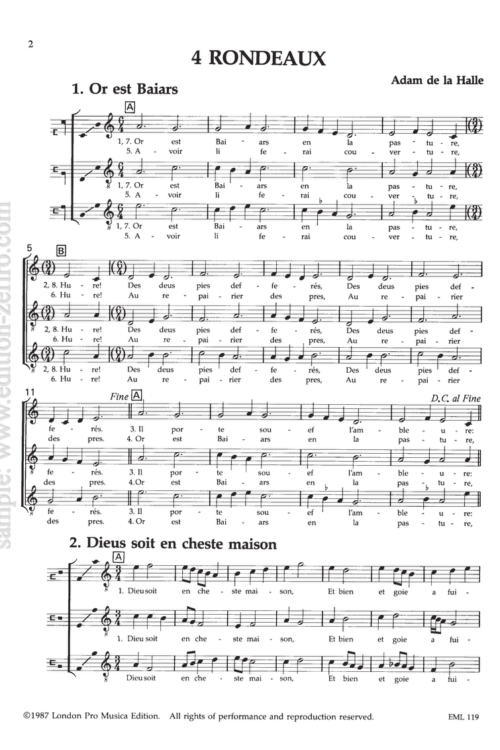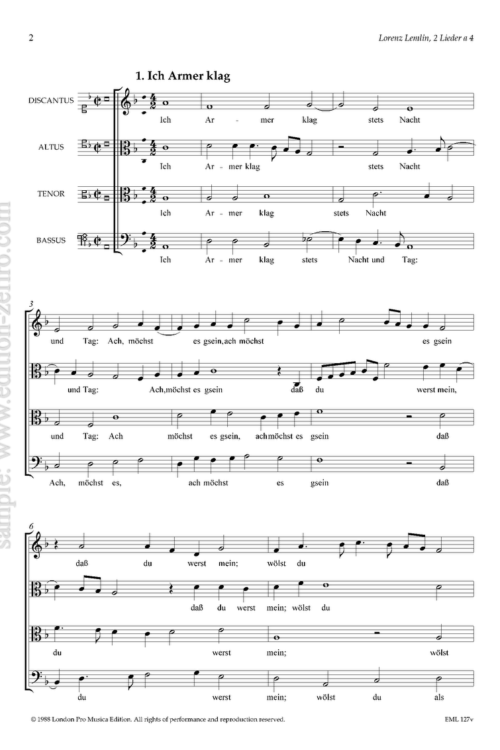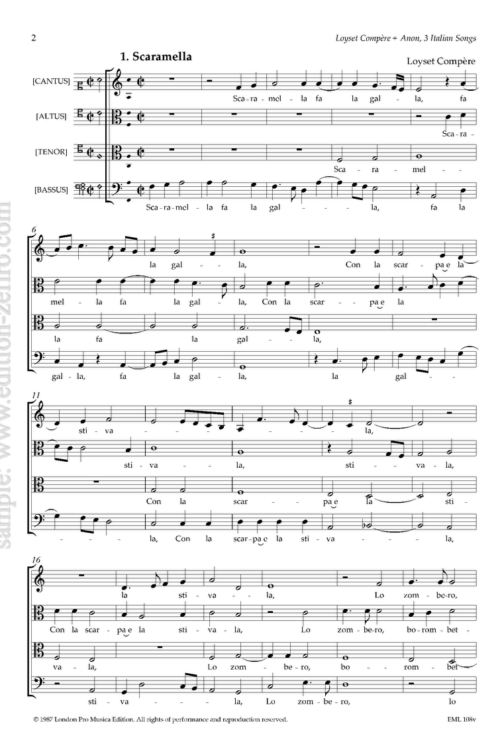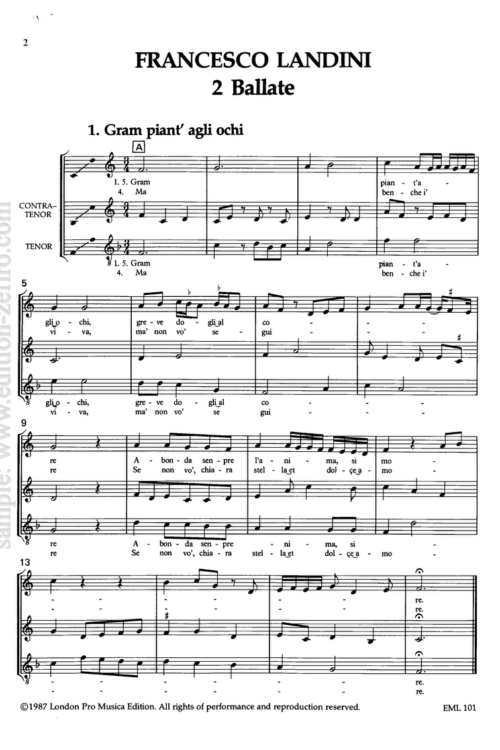This is a setting of a poem by Ronsard. Although set in 2 choirs, it is not intended for separated choirs, as the bass is not always present in both choirs.
Lassus’ Que dis tu is printed after the 1578 edition of his Mellanges.
The poem was first published in that poet’s Continuation des Amours of 1555; it was set by several other composers, including Castro, Boni, Engraines and Gardane.
(Bernard Thomas)
Translation
What are you saying, what are you doing, plaintive turtle-dove
On that barren branch? Alas, I am grieving, passer-by.
Why so? tell me. For my lost love,
Dearer to me than life. Where is she then?
A cruel thief, with lime an deceit
Has caught and killed her. Now night and day I mourn
Her death in these woods, and call death a foe
Because he hasn’t killed me too, along with my dear one.
Would you truly wish to die with your love?
Yes, O yes, for I am pining away in sorrow,
And grief for her death is with me always.
O dear sweet bird, how fortunate you are
To love so faithfully, how lucky to have a heart
Which never wavers in its constant love!


